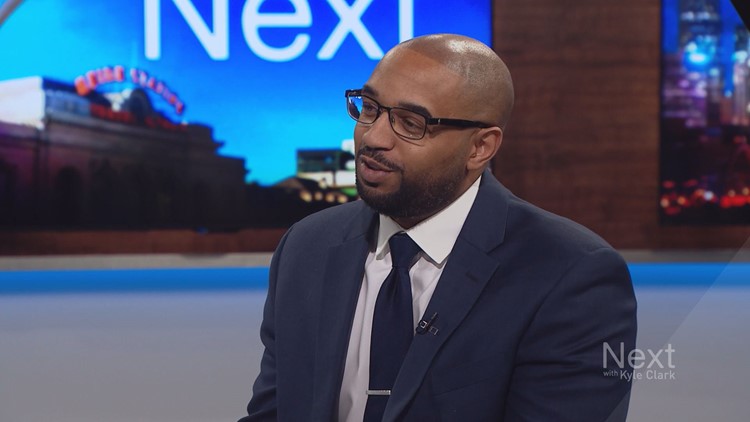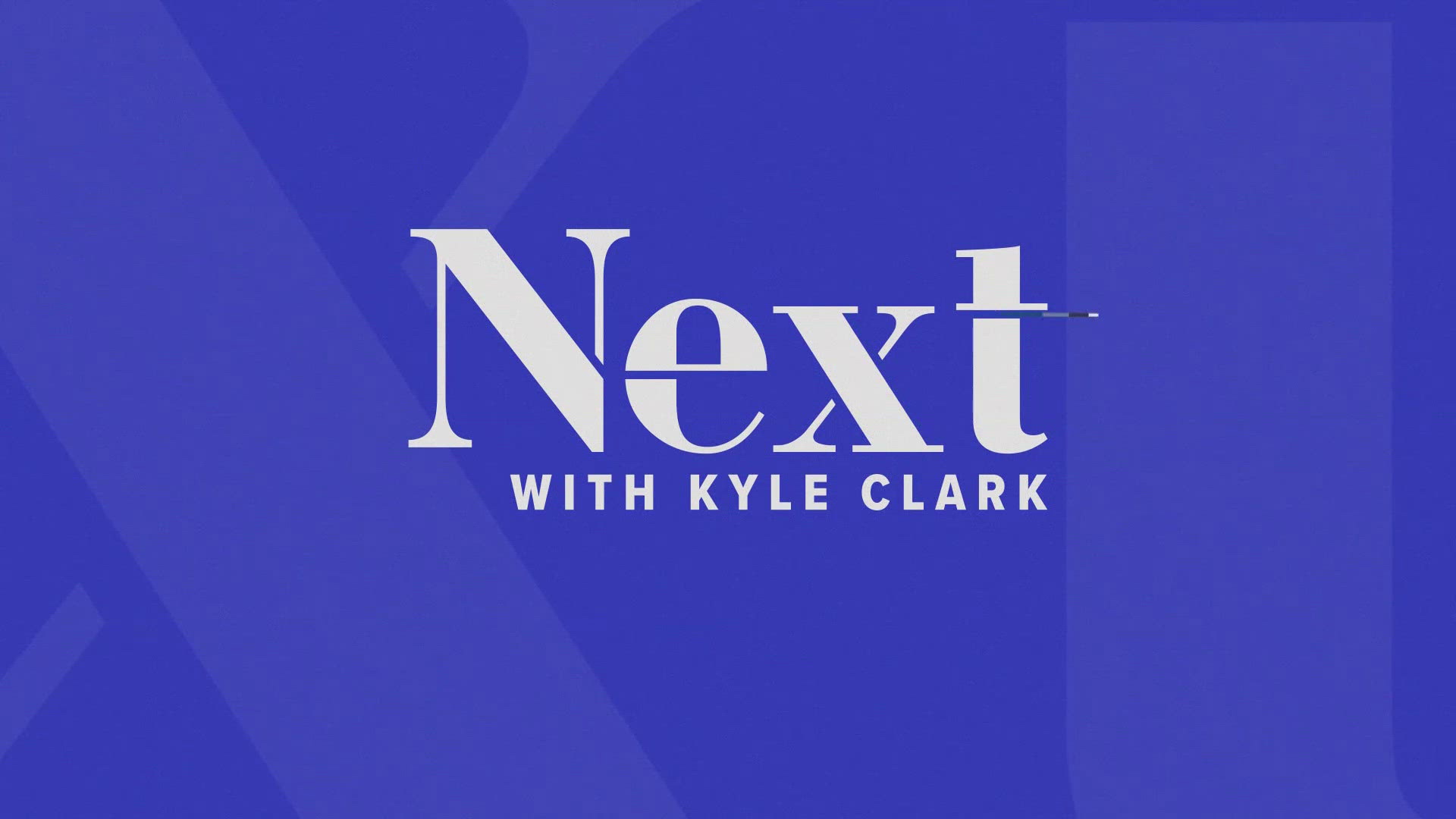DENVER — Denver's new public works director is trying to more than double the percentage of people using public transit - to 15 percent - without getting around getting hellish for the majority who choose to drive.
Eulois Cleckley has worked in Houston and DC. In Denver, he's faced with a city built for the automobile, but not built for this many of them.
Here are a few takeaways from Cleckley's interview with Next with Kyle Clark.
1. A major goal is to provide a multitude of choices for the people of Denver when it comes to transportation and mobility.
"With our department being the implementing department for the mayor’s Mobility to Action Plan, the focus is on providing more accessible transportation options and improving our infrastructure to allow people to walk in a convenient and safe manner. If individuals choose to use a bike as a mode of transportation, to provide that solid bike infrastructure to provide those connections, but also if people do choose to drive, making sure we have corridors that are set up in a fashion to move traffic in an efficient manner.”
2. The department hopes to double the percentage of transit usage in the city.
“It’s about availability, and we at this point, as an example for the fact that we have a goal to try to increase transit usage up to 15 percent of overall mode share, right now it’s about 6 to 7 percent.”
3. He doesn't drive a car in Denver, but that doesn't mean the city of Denver is not out to pry your car keys from your cold, dead hands.
“We only have about 78 percent of residents that live within a quarter mile of a bus stop or half a mile within a rail station. So we want to see 100 percent of our residents with that accessibility. In that particular instance, we definitely believe that will improve the amount of opportunities that residents will be able to take transit, but it doesn’t negate them from being able to take another mode... Balance is important because when you invest or you have a system that is only supportive of one particular mode, it creates congestion and pinch points within the overall system. And so that’s why it’s important that we need to build out all of our infrastructure to provide that choice for everybody so we can smooth out the traffic along our transportation network.
4. The department wants your input, whether you agree with its agenda or not.
“You’re always going to have individuals that might be in support of what you have going on as far as an agenda is concerned, but you’re always going to have individuals that have a concern. SO we don’t shy away from that, our department doesn’t, that’s part of making sure that we have a robust approach to making and receiving public input because both sides are valid and we take those concerns into consideration as we move forward with specific projects. So we don’t shy away from that type of attention.”
5. He doesn't think Denver's goal of zero fatalities on roadways by 2030 is impossibly high.
“For our vision as a department, we want to be the most ideal department within the country. We chose that vision for a purpose, because it’s really focused on trying to achieve perfection. In the safety realm, our goal is zero fatalities on our roadways. I don’t think anything above that is acceptable. And so we’ve seen a decrease from 2016 to 2017. We had 61 fatalities on our roadways in 2016, we had a lump sum 10 number drop in 2017 down to 51 fatalities on the roadways. So we’re going to be more aggressive.”
Kyle also asked Cleckley what Public Works is getting in return for all the money they're paying former Public Safety Manager Stephanie O'Malley, the daughter of former Mayor Wellington Webb. You can find that in our conversation below.
Click here if video does not appear.



